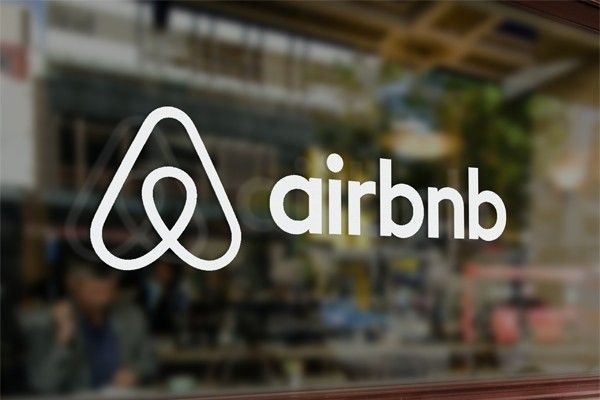Did you know that AirBnb rents out more rooms than any other hotel chain in the world?
Since its launch in 2009 as a small start-up company, AirBnB has officially surpassed any other hotel chain worldwide on the number of rooms/houses rented out. AirBnb's founders were extremely successful at expanding their business at the correct times and in the correct ways. AirBnb makes its revenue from the commissions charged on the host and the guest, which are both charged between 6-12% upon completion of the reservation. The more successful reservations that an individual has had, the lower the individual's fee is likely to be. The fees AirBnB receives on a $100 reservation could be as much as $24, but only if both the guest and host were charged 12%. When we consider that AirBnB makes a minimum of 12% on each reservation, the need for a lower commissioned market is evident. Implementing a decentralized blockchain platform could have significant advantages and appeals to both hosts and guests, and improve the platform as a whole.

When individuals are letting a "stranger" stay in their home, the guests reputation is vitally important.
AirBnB currently implements a star based review system which allowed both parties to give the others a score and write any comments that they had about the property or their experience, but how accurate is that? As many of us are aware, feedback scores and comments are easy to manipulate. Most people have seen evidence of fake feedback/reviews on websites, apps, and reviews, and the fake feedback would seem to be able to be placed on a AirBnB account as well...
A completely trustworthy reputation system can be achieved through the blockchain's public ledger.
Blockchain platforms' ability to produce an immutable public ledger significantly reduces the chance of invalid feedback/reviews on a user's account, and has the ability to give both parties a much better picture of what they should expect from the other. From a host's perspective you will have a much better idea on the guest's payment history and how respectful they are to the living space from the guest's public reservation history. The guest would have a greater understanding of how accurate the host's descriptions of the space are through the feedback left on the blockchain. The public ledger would display all reservations and both parties associated, but it would obviously not contain the sensitive details such as individual's names, address of the space, ect. Although AirBnB currently offers reviews and reputations on hosts and guests, employing a public and immutable ledger containing this information would make the reputation much more trustworthy for all parties involved.

With the implementation of public and private keys linked to every user, validation of a user's identity and history would be faster, more trustworthy, and more secure.
When a guest and host wanted to confirm a reservation both would be asked to sign a message with their respective keys, which upon completion would be an instant validation of identity. Every review or feedback left for any user would be linked to the public key of the poster, which would make leaving yourself false feedback much more difficult. When public keys are associated with every transaction, then the public ledger would be able to display all information surrounding those keys such as history and payments, without revealing the individual's identity. Across the US there have been numerous counties that have banned the use of AirBnB, because the areas consider it as residential housing and therefore cannot be rented openly to the public like a hotel. With the identity security and validation that the use of private and public keys offer, these types of ordinances would not have the ability to halt the rentals of AirBnB within that area.
The biggest advantage of this type of platform would be the reduced fees and costs incurred by both parties.
When we take a look at what typically causes individuals to change their behavior it is evident that in order to convince individuals to change their current behavior, the individuals must have motivation or incentives to change. The biggest incentive is nearly always a monetary advantage over their current behavior.If a platform has both a clear financial incentive and is an improved system or platform, then the platform has the true potential for long term success. Depending on how the platform was built and established, it is completely reasonable to see the total "transaction fees" being less than 2% in total.
If the platform was a truly decentralized platform and was not under any central authority other than the "miners" who enable the platform to continue, then the fees would likely be less than a full percent. Instead of having a central authority, such as AirBnB, holding funds until the reservation is over, a multi-signature payment release system would ensure both parties that they will receive or get returned the appropriate funds. The host has no reason to worry about credit card chargebacks or fees, because as soon as 2/3 addresses confirm the validity of the reservation then the payment is instantly released.

The blockchain's public ledger also makes searching more accurate than ever before.
Let's say that you not only want to find a property in the Miami area, but you also want the listing to be between $120-$160 per night, from hosts with 100+ reservations completed, and a specific reputation threshold. The public ledger aspects of the platform would allow an individual to set parameters that are much more specific, and these searches can be completed in a fraction of the time that the searches would currently take. If a host that receives a reservation request from a guest they have never interacted with before, then host can easily find out the reservation history of the associated public key to see things like how they treat the rentals and their payment dispute history. This increased importance of reputation on the platform incentives all users to act honorably and honestly, because their reputations are at stake. If a user begins to develope a lower reputation and a history of dishonest actions, then they may be rejected from renting from a host or may be asked for some method of advanced payment if they have a history of disputing payments.
I really hope that you enjoyed reading and please consider following, Re-Steeming, or upvoting if you enjoyed this post! Please do not hesitate to leave any comments below. Thanks for reading!
AirBnB information sources:
https://eventige.com/how-airbnb-became-the-largest-hotel-chain-without-owning-a-single-hotel/
Why does @asshole flag all these posts??
Downvoting a post can decrease pending rewards and make it less visible. Common reasons:
Submit
He ha been flagging a good majority of posts on steemit over the past 2 weeks or so. I have seen atleast 2 or 3 posts talking about it, but no one really knows besides trolling.
Downvoting a post can decrease pending rewards and make it less visible. Common reasons:
Submit
He even flagged these comments lol
Downvoting a post can decrease pending rewards and make it less visible. Common reasons:
Submit
So what if someone with 20 accounts did the same to all the posts? Why isnt there a timer or rep requirement for flagging - He literally has 0 posts/rep anything lol
Downvoting a post can decrease pending rewards and make it less visible. Common reasons:
Submit
I was actually just thinking about that, I don't think it has been an issue before this but I still don't see it as too big of a deal due to the fact he has flagged so many posts and many members are aware.
Downvoting a post can decrease pending rewards and make it less visible. Common reasons:
Submit